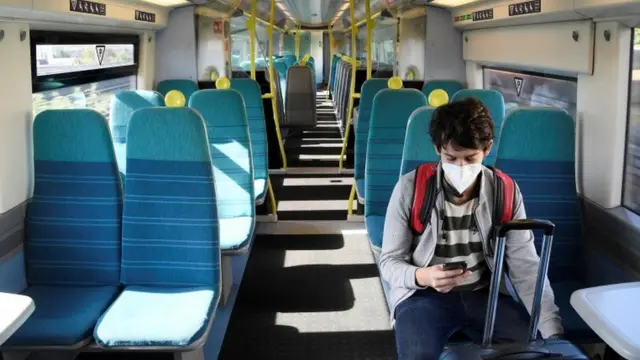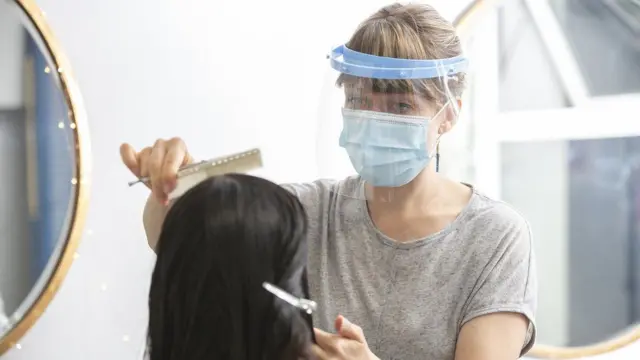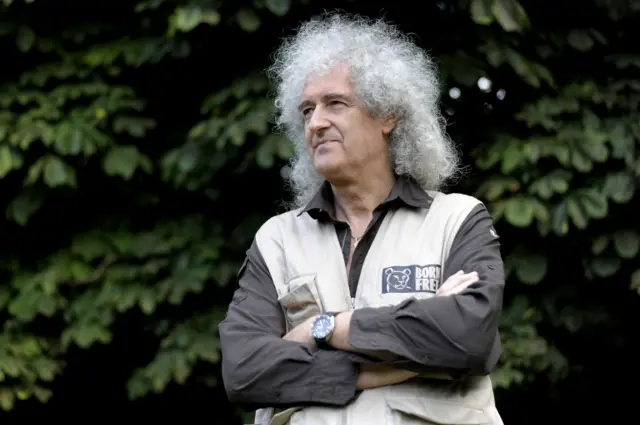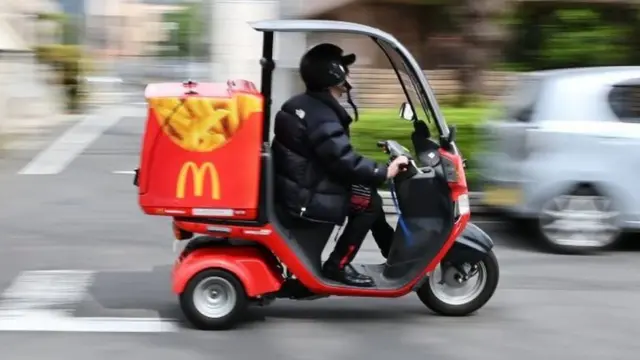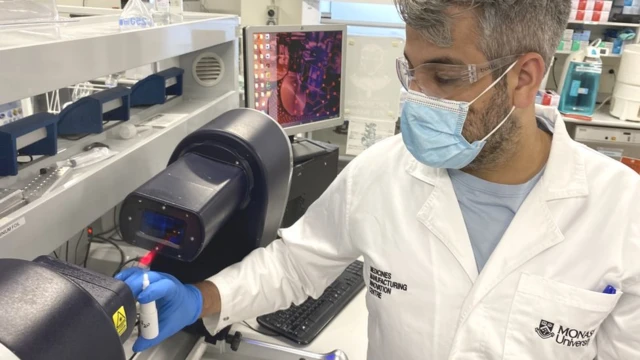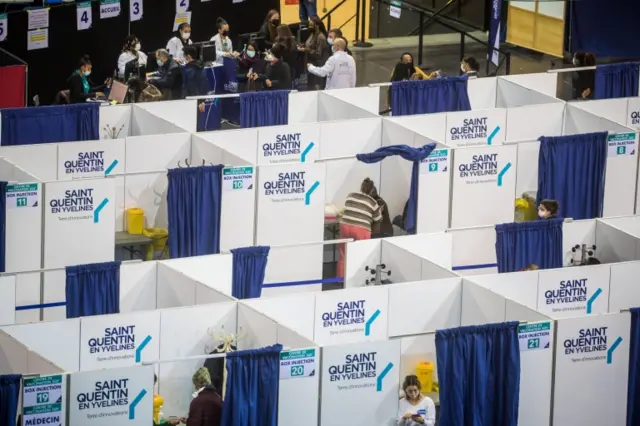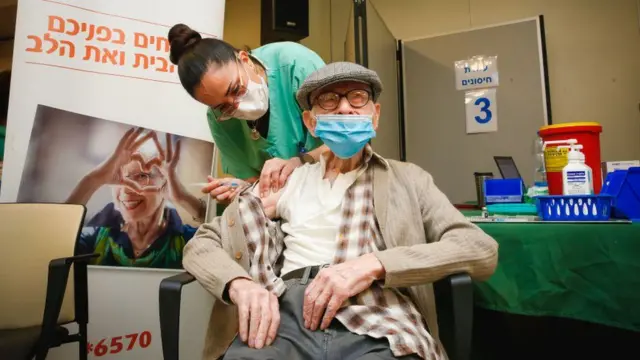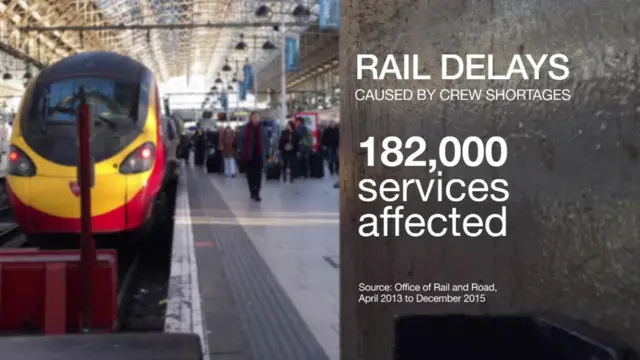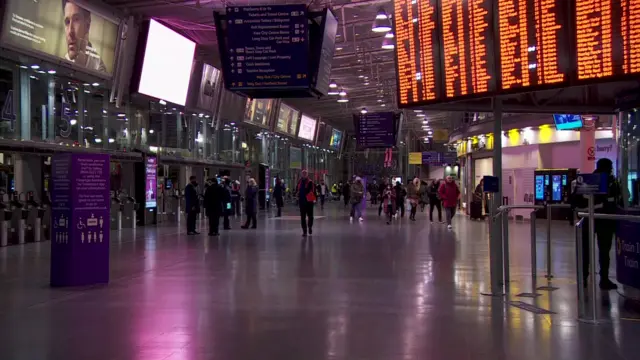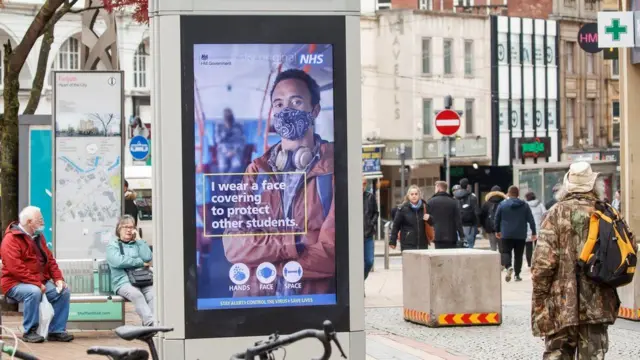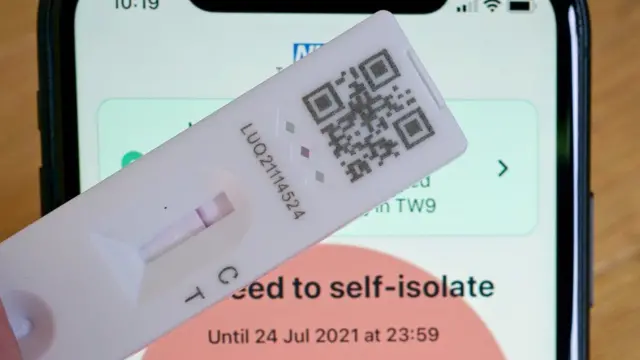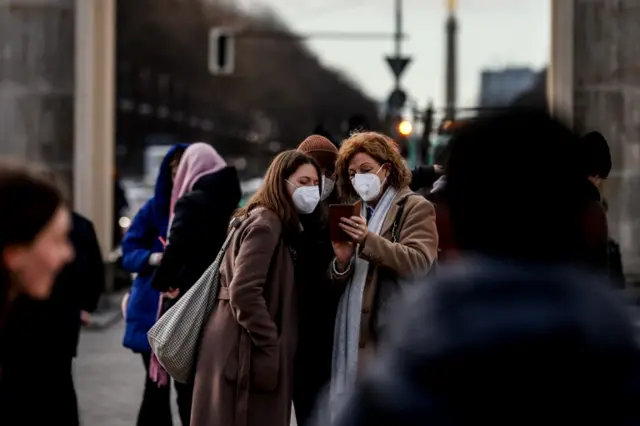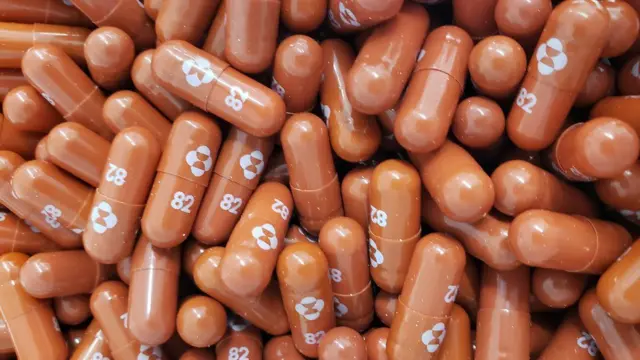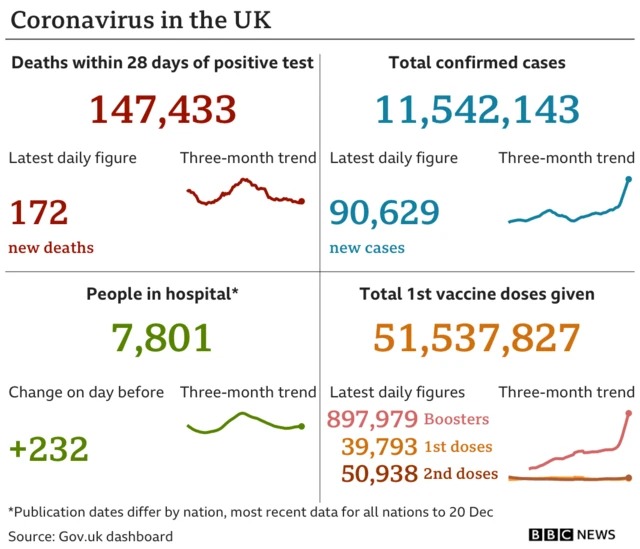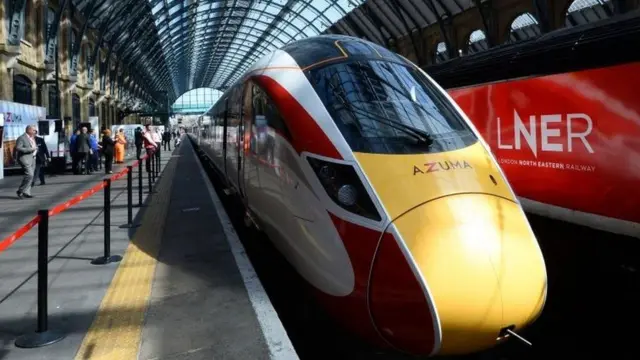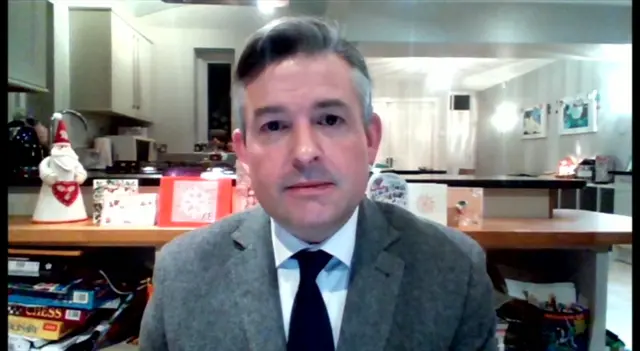Italy preparing for new measurespublished at 11:34 GMT 22 December 2021
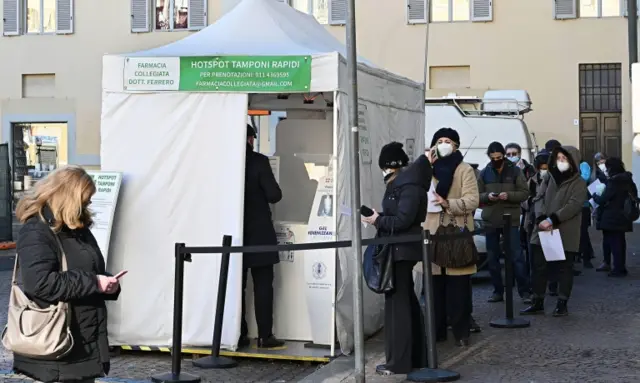 Image source, EPA
Image source, EPAOfficials are set to meet on Thursday to discuss potential measures
Italian Prime Minister Mario Draghi has said the government is preparing new Covid restrictions.
These could include a return to mandatory mask wearing outdoors and the wearing of more protective FFP2 masks indoors.
Mr Draghi also warned that the government may make vaccinations mandatory for more types of workers.
Officials are set to meet on Thursday to discuss potential measures.
It comes after other European nations such as Germany and Portugal introduced new restrictions to help tackle the spread of the Omicron variant.
Europe has already seen more than 89 million cases and 1.5 million Covid-related deaths, according to the latest EU figures.
